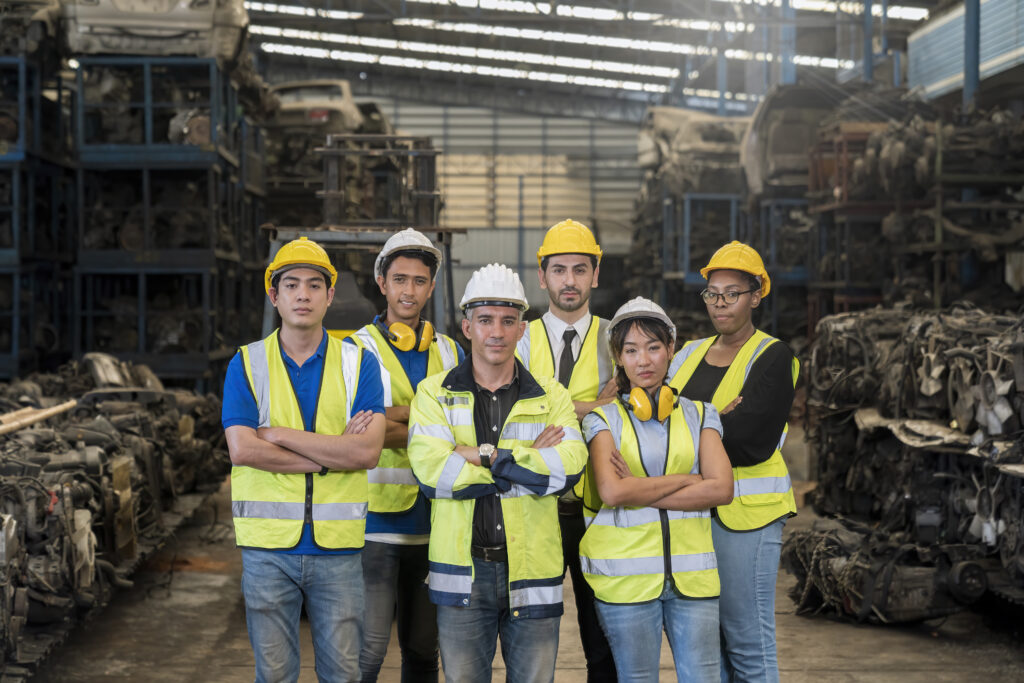How Labour Hire Supports Business Growth and Market Expansion

For many employers, taking on an apprentice is both an exciting opportunity and a new responsibility. The host environment you provide shapes not only the apprentice’s learning experience, but also their safety, motivation and long-term success. A well-structured workplace gives apprentices the confidence to apply their skills while contributing real value to your business.
Why Hire an Apprentice? The ROI for Employers

The electrical industry is at a crossroads. Demand for skilled electricians has never been stronger, with renewable energy projects, data centres, infrastructure upgrades and housing construction all competing for labour. Yet the number of new apprentices entering the trade has fallen, creating concern across the sector about how future demand will be met.
The slowdown in commencements has been most evident since the wind-back of federal subsidy programs in 2024. Many employers, already feeling the effects of a quieter construction market in some states, have been reluctant to commit to new starts. At the same time, training providers are facing challenges of their own, with limited teaching capacity and long waiting times for core electrical units.
This combination has created what some are calling an “apprenticeship crisis.” But while the situation is serious, it also offers an opportunity to reshape how the industry attracts, supports and retains its future workforce.
Labour Ready: How to Find Skilled Workers

The electrical industry is at a crossroads. Demand for skilled electricians has never been stronger, with renewable energy projects, data centres, infrastructure upgrades and housing construction all competing for labour. Yet the number of new apprentices entering the trade has fallen, creating concern across the sector about how future demand will be met.
The slowdown in commencements has been most evident since the wind-back of federal subsidy programs in 2024. Many employers, already feeling the effects of a quieter construction market in some states, have been reluctant to commit to new starts. At the same time, training providers are facing challenges of their own, with limited teaching capacity and long waiting times for core electrical units.
This combination has created what some are calling an “apprenticeship crisis.” But while the situation is serious, it also offers an opportunity to reshape how the industry attracts, supports and retains its future workforce.
Apprenticeship Crisis Meets Opportunity

The electrical industry is at a crossroads. Demand for skilled electricians has never been stronger, with renewable energy projects, data centres, infrastructure upgrades and housing construction all competing for labour. Yet the number of new apprentices entering the trade has fallen, creating concern across the sector about how future demand will be met.
The slowdown in commencements has been most evident since the wind-back of federal subsidy programs in 2024. Many employers, already feeling the effects of a quieter construction market in some states, have been reluctant to commit to new starts. At the same time, training providers are facing challenges of their own, with limited teaching capacity and long waiting times for core electrical units.
This combination has created what some are calling an “apprenticeship crisis.” But while the situation is serious, it also offers an opportunity to reshape how the industry attracts, supports and retains its future workforce.
Training2Tradie: Building the Skills and Confidence to Succeed Beyond Apprenticeship

At Frontline Human Resources, we know that the final year of an apprenticeship can be equal parts exciting and uncertain. For many apprentices, the question isn’t just “when will I be qualified?”—it’s “what happens after I’m qualified?”
That’s exactly why we’ve launched Training2Tradie, a practical, forward-looking initiative tailored specifically to 4th year apprentices who are approaching the end of their apprenticeship.
We recently had the opportunity to present the program at the 2025 Melbourne Careers Expo, where it struck a chord with apprentices, educators, and employers alike.
Navigating New Supervision Standards: How GTOs Will Support Apprentices and Host Employers Through the Change

From 1 September this year, a significant shift will take place across Victoria’s electrical industry with the implementation of strengthened apprentice supervision requirements, introduced by Energy Safe Victoria (ESV) in collaboration with aligned regulatory bodies. These reforms are designed to enhance safety, elevate the quality of training, and minimise the risk of electrical incidents—particularly for apprentices in the early stages of their careers, who are still developing the technical skills and situational awareness essential for safe practice.
Rebuilding the Electrical Apprenticeship Pipeline: The Case for Group Training Organisations

While the demand for skilled electricians is escalating—driven by infrastructure projects, renewable energy initiatives, and technological advancements—the supply of qualified, competent apprentices is dwindling. This disparity has stirred up some quiet frustrations across the industry and to an extent, ignited a national debate: are we compromising the quality of training in our rush to increase apprenticeship numbers?
Resume Writing & Reviewing: Understanding Both Sides of the Coin

Whether you’re searching for your next opportunity or hiring top talent, mastering the resume process is essential. We’ve asked our top recruitment consultants to share their expert tips for jobseekers on how to write a standout resume – and proven strategies for employers to efficiently review and shortlist candidates.
The Importance of Lifelong Learning: Unlocking Growth and Success

In today’s fast-paced world, lifelong learning is essential for personal and professional success. It extends beyond formal education, encouraging continuous development through experiences, self-study, and staying curious about the world. Whether you are advancing your career, exploring new interests, or staying competitive in your field, lifelong learning offers endless opportunities for growth.
The Benefits of Soft Skills in the Modern Workplace

In today’s fast-evolving job market, technical expertise and industry knowledge are no longer the sole determinants of career success. Increasingly, employers are placing greater emphasis on soft skills—those intangible qualities that define how individuals interact, communicate, and collaborate in a professional environment. Whether you are a job seeker looking to stand out or an employer striving to build a cohesive team, understanding the benefits of soft skills is essential.